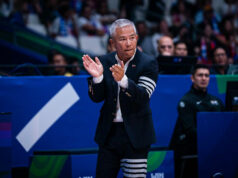First off, let’s be clear about one thing: You need ego to coach in the National Basketball Association. You can’t be anywhere near effective in directing players who have salaries that dwarf yours if you don’t know your strengths and, just as importantly, have pride in them. Competence is one thing, and should be a given. There are only 30 spots, and the fact that you got one means you’re good with the Xs and Os. Success is another, and requires a walk on the tightrope that bridges assertion and understanding, especially when it comes to dealing with invariably entitled superstars.
Which, in a nutshell, is why Brad Stevens has managed to coax the most out of his charges. To argue that the Celtics have had an up-and-down season is to understate the obvious. They blew up a roster that led them to the 2017 Conference Finals, snagged two All-Stars in the process, and then went through a regular season in which both wound up injured and out for the remainder of their 2017-2018 campaign. Yet, even as advanced analytics had them waddling through mediocrity, their bench tactician instead steered them to surprising competitiveness.
In this light, Stevens isn’t just being modest when he says he accepts why his name didn’t appear in a single National Basketball Coaches Association ballot for Coach of the Year (CoTY). He’s staying true to himself. The confident, if even-keeled, approach that has allowed him to prosper despite seemingly overwhelming odds propels his appreciation of the development. He realizes all the effort everybody else in the hot seat has put in and rightly believes voting results to be no slight.
If anything, the recognition of Dwane Casey as CoTY underscores the propriety of Stevens’ position. The Raptors mentor presided over a cultural transformation that allowed the red and black to claim the conference top seed, an accomplishment that will not be erased from the books even if their subsequent shellacking at the hands of LeBron James and the Cavaliers figures to impact his tenure. The work is hard. The work never ends. The work does not look for recognition other than what the results highlight.
It is with no irony that Stevens now finds himself in the same boat. As with Casey and the Raptors before him, the Celtics’ road to the Finals will come through James. And, parenthetically, the underestimation of his coaching prowess is juxtaposed with that of Tyronn Lue, whose crucial role in engineering the greatest comeback in league history en route to the 2016 championship continues to be discounted, and whose steady oversight of the dysfunctional Cavaliers remains overlooked.
So when Stevens says “it’s so incredible to have an opportunity to be one of 30,” he means it. And, frankly, the finest feather in a coach’s cap is not that which comes from peers, but from the players themselves. It’s why he won’t be losing any sleep over the supposed passover. He had them at hello, and he knows he will still have them when the inevitable goodbye comes.
Anthony L. Cuaycong has been writing Courtside since BusinessWorld introduced a Sports section in 1994.



